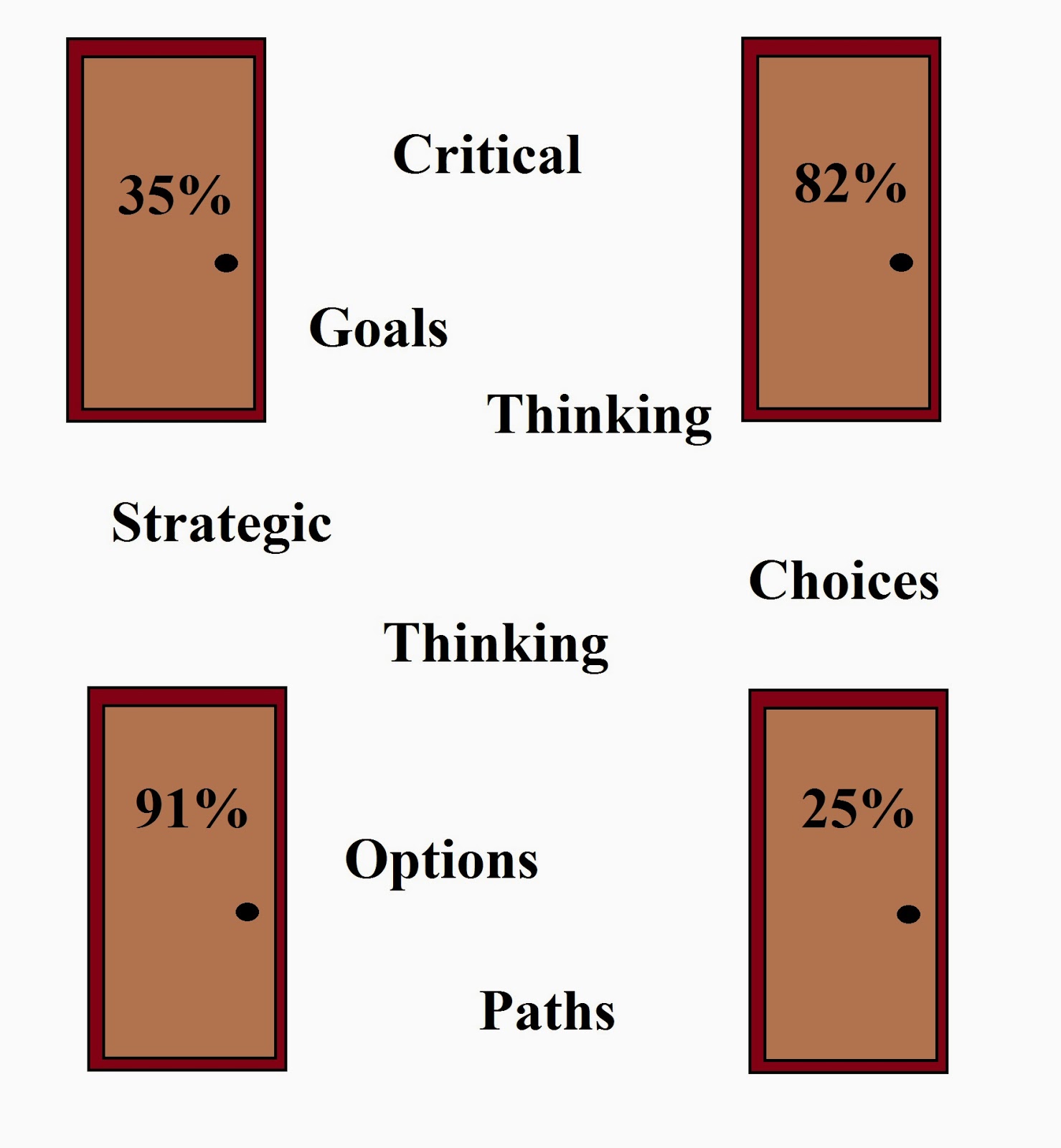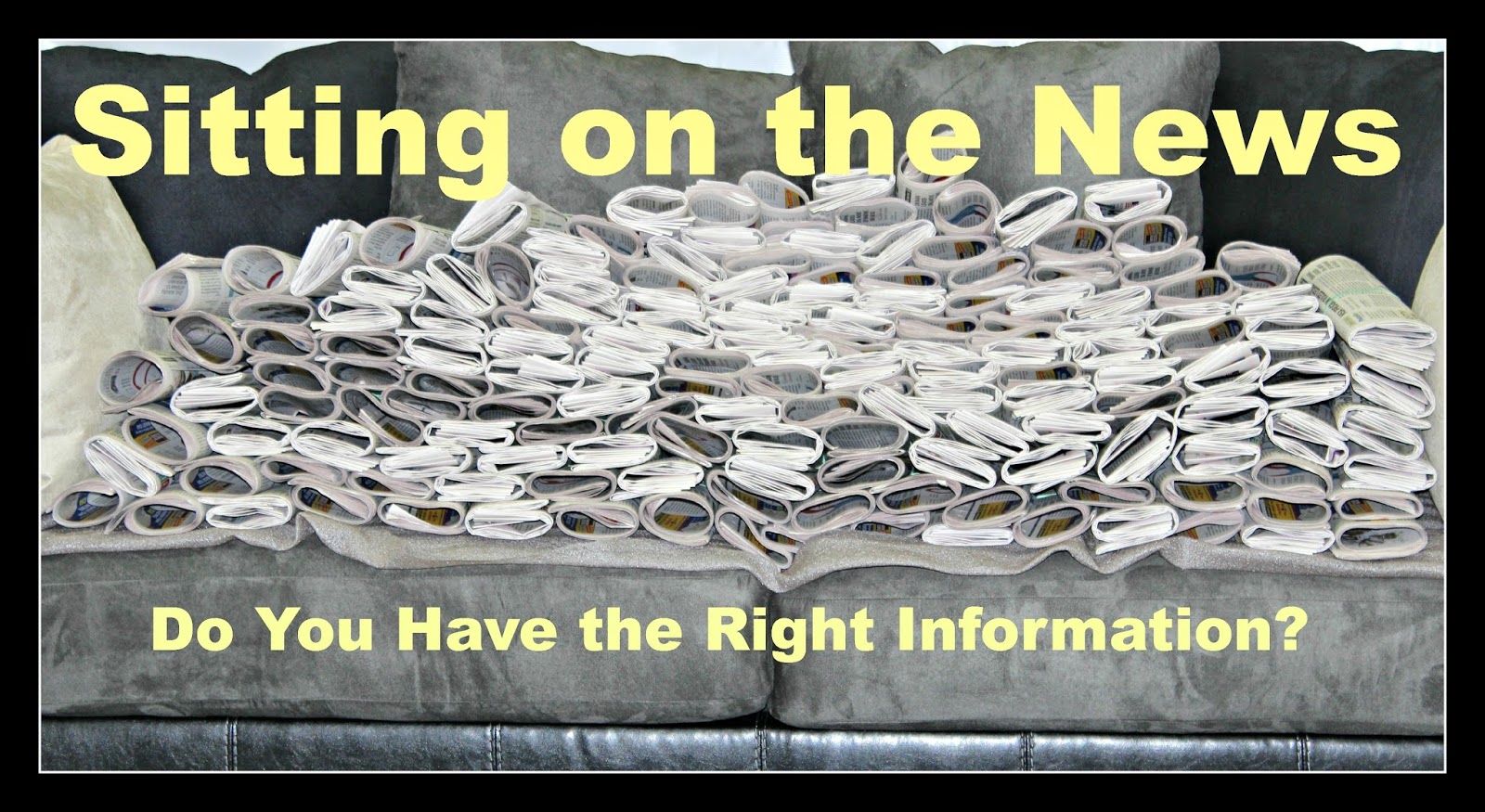Strategic decision making can encourage you to stronger better
paths to achieve important goals. When decisions are well thought out they can help
you get closer to where you want to be while using much less effort. Understanding the difference between
data and the interpretation of that data helps in seeing and then figuring out
the choices that lead down varying paths. A few tips may help you think through
options and make more accurate choices that help you improving business and
career outcomes.
Understanding the data and thinking through the options affords an opportunity to create critical thinking. Critical thinking can be defined as the objective analysis of information and options that leads to a decisive conclusion. To do this well requires that ability to see the possibilities and pick the ones that are not only most likely but also help you achieve your goals.
Step 1: Define Your Goals: Knowing your goals and what you want to accomplish might be the hardest part of thinking strategically. We may think the data should define our goals but that isn’t always true. Our general direction and goals be a guide to our everyday decisions to ensure we have a framework for interpreting new data. Keeping your long term goals in mind will help you make the daily decisions that help you get there.
Step 2: Understand the Data: Understand what the data covers and what it doesn't. This requires knowledge of the methods of data collection and the areas that the data has no measurement. Better knowledge of the data will help you stay away from illogical interpretations.
Understanding the data and thinking through the options affords an opportunity to create critical thinking. Critical thinking can be defined as the objective analysis of information and options that leads to a decisive conclusion. To do this well requires that ability to see the possibilities and pick the ones that are not only most likely but also help you achieve your goals.
Step 1: Define Your Goals: Knowing your goals and what you want to accomplish might be the hardest part of thinking strategically. We may think the data should define our goals but that isn’t always true. Our general direction and goals be a guide to our everyday decisions to ensure we have a framework for interpreting new data. Keeping your long term goals in mind will help you make the daily decisions that help you get there.
Step 2: Understand the Data: Understand what the data covers and what it doesn't. This requires knowledge of the methods of data collection and the areas that the data has no measurement. Better knowledge of the data will help you stay away from illogical interpretations.
Step 3: Evaluate the Interpretations: Data is just numbers and letters but there are always multiple interpretations of that data; the most popular isn't always the most accurate. Make sure that you understand all of the most likely interpretations of the information to ensure that the main paths are exposed. This is important if you want the full breadth of options because some of the best one's are not always apparent.
Step 4: Narrow Down the Paths: Based upon logic, experience, risk, and reward narrow down your options to the one or two that will most likely help you achieve your goals. Out of the many possibilities only a few will make any real sense to you. Some can be discarded right away.
Step 5: Select Option and Alternative Option: Among the remaining few options you should select the primary and the secondary option as a strategic action forward. If the primary doesn't work out for some reason you can fall back on your secondary plan. The final selection should include not only your experience, and knowledge, but also sound judgement as this is the selection that will impact a future course of events.

